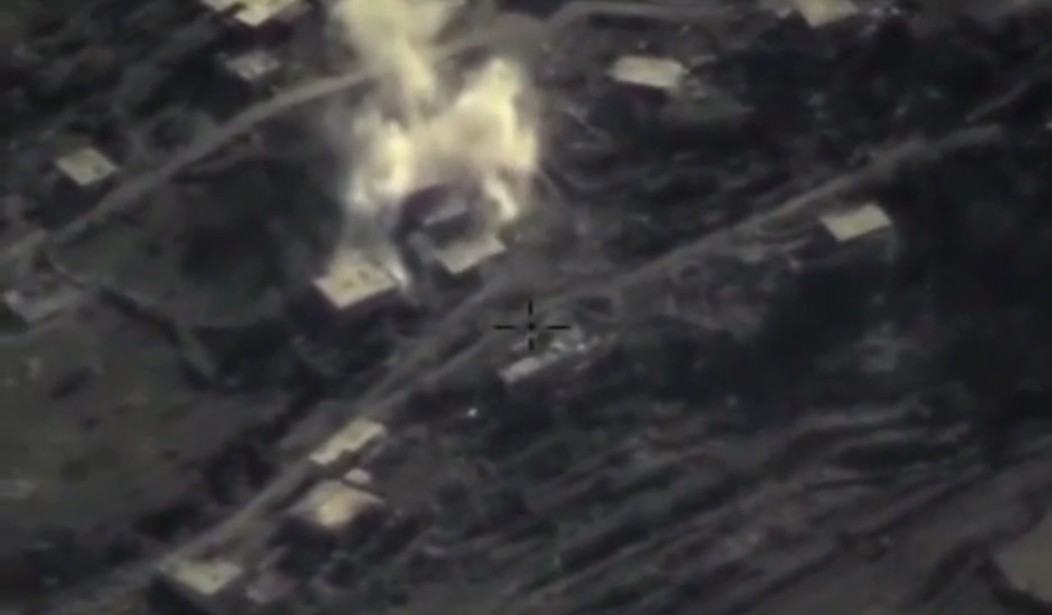John Schindler looks at the deteriorating situation between Moscow and Ankara:
Where things may be going between Russia and Turkey, ancient enemies who have warred many times over the centuries, was evidenced this week, when the Kremlin announced large-scale surprise military exercises in the regions of the country that are close to Turkey. Troops were moved to full combat readiness, the last stage before a shooting war, with Sergei Shoygu, the Russian defense minister, announcing on TV: “We began our surprise check of the military preparedness in the Southwest strategic direction.”
That would be the direction of Turkey. These snap exercises involve the Southern Military District and the navy’s Black Sea Fleet, which are deeply involved in Russia’s not-so-secret secret war in eastern Ukraine. However, they also involve the navy’s Caspian Sea flotilla, which is nowhere near Ukraine.
It’s difficult to see how Turkey could stand idly by as an ancient city of two million is crushed just fifty miles from its frontier.
This implies that the snap exercises, which have been prominently featured in Kremlin media, are about Turkey, not Russia.
The latest powderkeg is Aleppo, where a Russo-Syrian offensive to recapture that ancient city could spark the biggest refugee crisis yet, right on Turkey’s border.
Putin knows he has a window till 20 JAN 2017 to break NATO, so he’s playing high-stakes poker. He could cause #WW3. https://t.co/dDSpvZtC73
— John Schindler (@20committee) February 11, 2016
If Turkey acquiesces, they’ll have to absorb perhaps as many as a million additional refugees in a very short time — with more to follow. Ankara has started making noises about opening its Thracian border and letting their Syrian “migrants” go north into Europe, as a way to get the EU and NATO to take Turkey’s Russo-Syrian problem seriously. Or Turkey might even go it alone:
After months of hinting that it would consider entering Syria to help anti-Assad forces, Turkey now appears to be actually moving toward that reality. According to intelligence sources in the area, there are “increasing signs” that Turkey is mobilizing ground forces to enter the Syria fray.
The moves come only days after President Recep Tayyip Erdogan said, “We don’t want to fall into the same mistake in Syria as in Iraq,” according to Bloomberg News.
Erdogan did not specifically say Turkey will enter Syria, however. He responded to a question about whether Turkey would enter Syria by saying, “You don’t talk about these things. When necessary, you do what’s needed. Right now our security forces are prepared for all possibilities.”
If either Erdogan or Putin does trigger a confrontation, the Atlantic Alliance can either attempt to deter Putin on a shoestring budget, or find some political accommodation for Putin’s imperial ambitions.
The European members of NATO lack the logistical wherewithal to counter a large-scale Russian advance into Turkey, or even to put up a respectable show of force in eastern Turkey to counter Putin’s saber-rattling. That would leave it up to Barack Obama, effectively alone, to send in the U.S. Army and Marines — those dreaded boots on the ground.
NATO’s other military option would be to threaten the Russian Motherland directly, via Ukraine, Belarus, or the Baltic states. The risk of a nuclear exchange under that scenario is so high as to render the direct option practically unthinkable.
But if NATO were to fail to respond to Russian military aggression, it would mean the effective end of the Alliance.
Today we find that the fate of NATO, indeed of the entire postwar European order, rests in the hands of Vladimir Putin and Recep Tayyip Erdogan. This volatile and dangerous situation is the bitter fruit of seven years of American resets, retreats, and vanishing red lines.










Join the conversation as a VIP Member